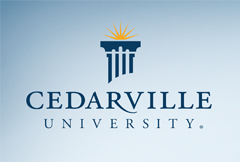Keywords
Ethics, in vitro fertilization, IVF, human embryos, embryo adoption, adoption, Christian
Abstract
In vitro fertilization (IVF) has become the most common assisted reproductive technique in the United States, accounting for 48,000 births in one recent year alone. This has also given birth to a silent generation of over 500,000 human embryos, waiting in cryopreservation for their chance at birth (Grabill, 2006). For the Christian who believes that conception marks the beginning of human life, the fact of half a million frozen persons creates an ethical challenge of enormous proportion. Besides the obvious solution of not contributing to the problem (by freezing or discarding one’s own embryos), embryo adoption is often presented as the only life- affirming option left available (Sullivan, 2007). This paper will defend an additional approach that seems absent from the Church’s pro-life strategy.
DOI
10.15385/jce.2007.7.1.3
Recommended Citation
Seman, Jessica
(2007)
"The Pro-Child Movement: Adopting a Compassionate Strategy,"
CedarEthics: A Journal of Critical Thinking in Bioethics: Vol. 7:
No.
1, Article 3.
DOI: 10.15385/jce.2007.7.1.3
Available at:
https://digitalcommons.cedarville.edu/cedarethics/vol7/iss1/3
Creative Commons License

This work is licensed under a Creative Commons Attribution-Noncommercial-No Derivative Works 3.0 License.
Disclaimer
The CedarCommons repository provides a publication platform for fully open access journals, which means that all articles are available on the Internet to all users immediately upon publication. However, the opinions and sentiments expressed by the authors of articles published in our journals do not necessarily indicate the endorsement or reflect the views of Digital Services, the Centennial Library, or Cedarville University and its employees. The authors are solely responsible for the content of their work. Please address questions to the Digital Services staff.
Copyright
© 2007 Jessica Seman. All rights reserved.
